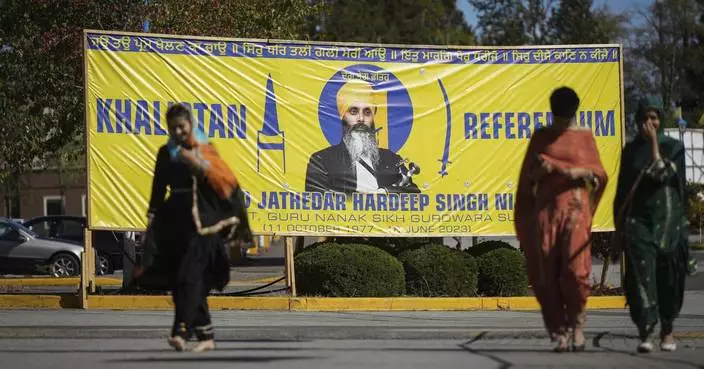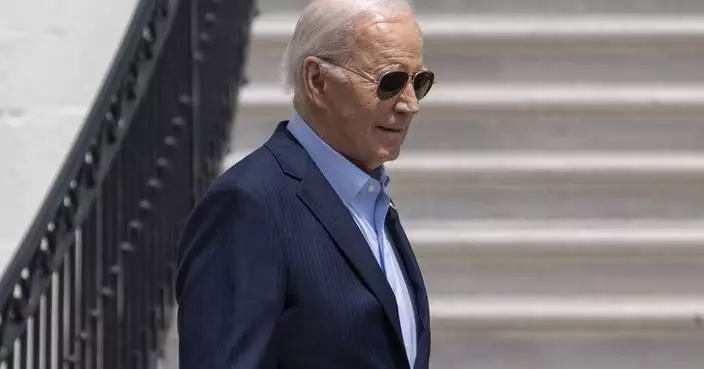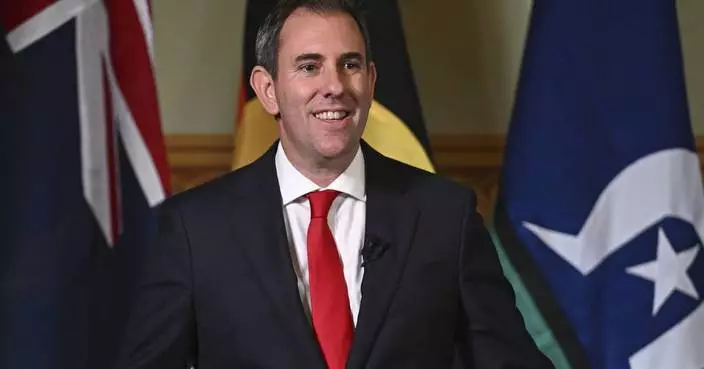India's Ministry of Information and Broadcasting on Tuesday withdrew a sweeping new order clamping down on journalists accused of spreading fake news.
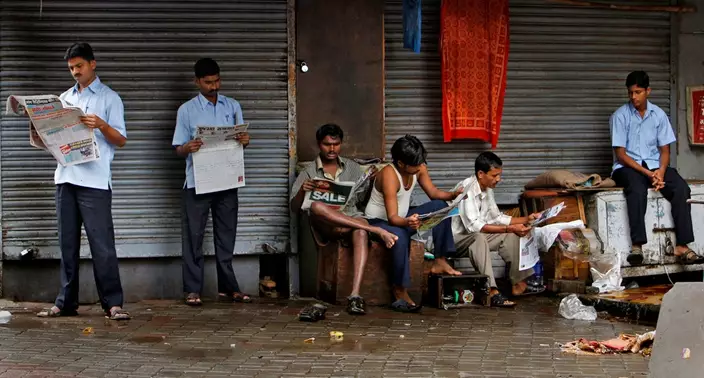
FILE- In this July 15, 2011 file photo, Indians read newspapers at Zaveri bazar, a market in Mumbai, India. India’s Ministry of Information and Broadcasting has withdrawn a sweeping new order clamping down on journalists accused of spreading fake news. The U-turn on Tuesday came hours after the ministry announced that reporters' press credentials could be suspended simply for an accusation of spreading fake news. (AP Photo/Aijaz Rahi, File)
The U-turn came hours after the ministry announced that reporters' press credentials could be suspended simply for an accusation of spreading fake news.
The rules, issued by a government often deeply sensitive to media criticism, angered journalists and opposition politicians, who called it an attempt to gag the media in the run-up to national elections expected next year.
Several Indian news outlets reported that the initial order, announced late Monday night, was withdrawn on the instructions of Prime Minister Narendra Modi, who said that issues surrounding fake news should be dealt with by the Press Council of India, a semi-independent press group.
On Tuesday afternoon, the Ministry of Information and Broadcasting issued only a terse statement saying that the press release that announced the new guidelines to regulate fake news "stands withdrawn."
Through Tuesday morning there was anger against the order.
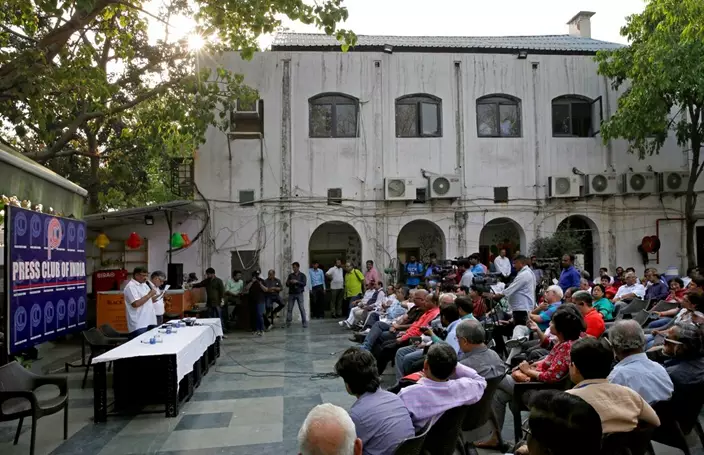
Press Club of India President Gautam Lahiri addresses a gathering of journalists in New Delhi, India, Tuesday, April 3, 2018. India's Ministry of Information and Broadcasting on Tuesday withdrew a sweeping new order clamping down on journalists accused of spreading fake news. The rules, issued by a government often deeply sensitive to media criticism, angered journalists and opposition politicians, who called it an attempt to gag the media in the run-up to national elections expected next year. (AP Photo/Altaf Qadri)
"Make no mistake: this is a breathtaking assault on mainstream media," Shekhar Gupta, a senior political journalist, tweeted after the new rules were announced. The order did not define fake news or make clear who could make a complaint.
It was unclear what caused the reversal, particularly with a prime minister who takes pride in being deeply involved in nearly all major decisions.
Journalists welcomed the change, though many were also wary about what had happened.
"We should all remain vigilant that if a government does this kind of a thing then you never know" when they will do it again, said Gautam Lahiri, president of the Press Club of India.
Late Monday, the information ministry announced that the accreditation of any journalist who "created and/or propagated the fake news" would be suspended until an inquiry was completed. The statement said anyone found to be peddling fake news would lose their government accreditation for six months in the first case, one year in the second case and permanently if it happens again.
While a journalist in India can work without government accreditation, a press card from the federal Press Information Bureau is required to cover government events and ministries and get access to the houses of Parliament.
TOKYO (AP) — Japan and India on Saturday decried remarks by U.S. President Joe Biden describing them as “xenophobic” countries that do not welcome immigrants, which the president said during a campaign fundraising event earlier in the week.
Japan said Biden's judgment was not based on an accurate understanding of its policy, while India rebutted the comment, defending itself as the world’s most open society.
Biden grouped Japan and India as “xenophobic” countries, along with Russia and China as he tried to explain their struggling economies, contrasting the four with the strength of the U.S. as a nation of immigrants.
Japan is a key U.S. ally, and both Japan and India are part of the Quad, a U.S.-led informal partnership that also includes Australia in countering increasingly assertive China in the Indo-Pacific.
Just weeks ago, Biden hosted Japanese Prime Minister Fumio Kishida on an official visit, as the two leaders restated their “unbreakable alliance” and agreed to reinforce their security ties in the face of China’s threat in the Indo-Pacific.
Indian Prime Minister Narenda Modi also made a state visit to Washington last year, when he was welcomed by business and political leaders.
The White House said Biden meant no offense and was merely stressing that the U.S. was a nation of immigrants, saying he had no intention of undermining the relationship with Japan.
Japan is aware of Biden's remark as well as the subsequent clarification, a Japanese government official said Saturday, declining to be named due to the sensitivity of the issue.
The official said it was unfortunate that part of Biden's speech was not based on an accurate understanding of Japanese policies, and that Japan understands that Biden made the remark to emphasize the presence of immigrants as America’s strength.
Japan-U.S. relations are “stronger than ever” as Prime Minister Kishida showed during his visit to the U.S. in April, the official said.
In New Delhi, India’s External Affairs Minister S. Jaishankar on Saturday also rebutted Biden’s comment, saying India was the most open society in the world.
``I haven’t seen such an open, pluralistic, and diverse society anywhere in the world. We are actually not just not xenophobic, we are the most open, most pluralistic and in many ways the most understanding society in the world,” Jaishankar said at a roundtable organized by the Economic Times newspaper.
Jaishankar also noted that India’s annual GDP growth is 7% and said, “You check some other countries’ growth rate, you will find an answer.” The U.S. economy grew by 2.5% in 2023, according to government figures.
At a hotel fundraiser Wednesday, where the donor audience was largely Asian American, Biden said the upcoming U.S. election was about “freedom, America and democracy” and that the nation’s economy was thriving “because of you and many others.”
“Why? Because we welcome immigrants,” Biden said. “Look, think about it. Why is China stalling so badly economically? Why is Japan having trouble? Why is Russia? Why is India? Because they’re xenophobic. They don’t want immigrants.”
Japan has been known for a strict stance on immigration. But in recent years, it has eased its policies to make it easier for foreign workers to come and stay in Japan as a way to mitigate its declining births and rapidly shrinking population. The number of babies born in Japan last year fell to a record low since Japan started compiling the statistics in 1899.
India, which has the world’s largest population, enacted a new citizenship law earlier this year by setting religious criteria that allows fast-tracking naturalization for Hindus, Parsis, Sikhs, Buddhists, Jains and Christians who fled to India from Afghanistan, Bangladesh and Pakistan, while excluding Muslims.
AP writers Ashok Sharma in New Delhi and Seung Min Kim in Washington contributed to this report.
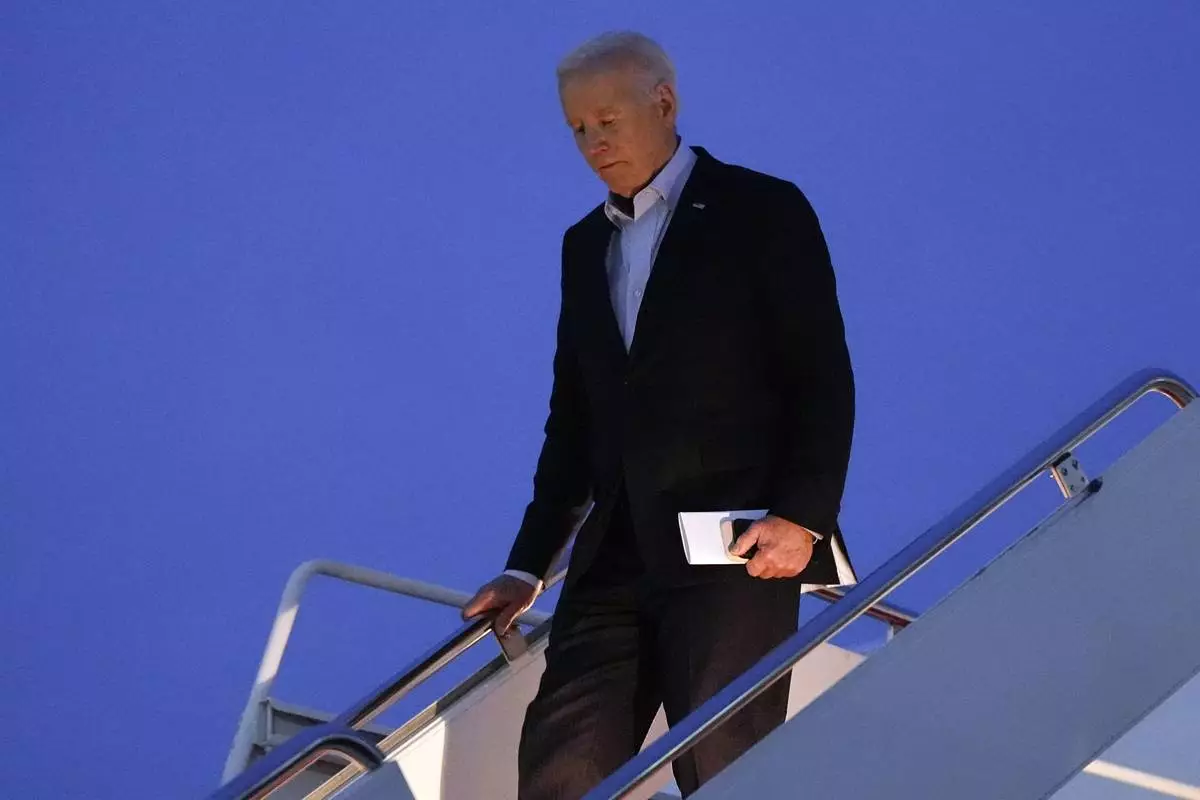
FILE - President Joe Biden arrives on Air Force One at Andrews Air Force Base, Md., Tuesday, April 30, 2024.. (AP Photo/Evan Vucci, File)






